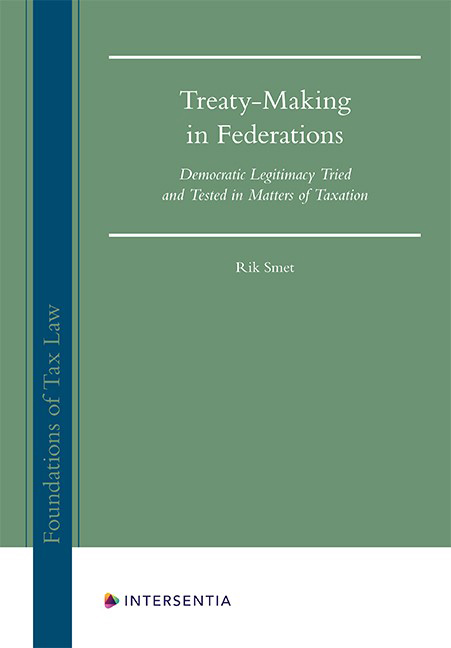Summary
MAIN CONCLUSIONS OF THIS BOOK
The main focus of this book concerned how treaty-making competence and power should be divided in federations between the different levels of government.
This legitimacy question was raised and approached from three different angles. What was referred to as ‘procedural legitimacy’ provided an answer as to, first, how the federation should approach treaty-making and, second, how the (potential) treaty partner should approach treaty-making with federations and their different entities. This procedural legitimacy may be relied on at the pivotal moments in a treaty's lifecycle, i.e. where an action is taken such as its conclusion, amendment or active termination. Because if the communicative action may flow freely between the governed periphery and the governing core of the political system, treaties concluded by this core should be considered legitimate. For the periods in between those pivotal moments, procedure can have no legitimating force and one must rely on the content of the treaty itself for its legitimacy. This was referred to as ‘meritorious legitimacy’. The main conclusions from this theoretical framework are the following.
1. For DTCs to be legitimate sources of law, the government(s) shaping them must be linked to the impacted citizenry and this link should be transparent and direct. In foro interno et in foro externo should therefore underlie the division of treaty-making power in federations. The legitimacy of treaties pursuant to this principle must still be assessed on a case-by-case basis.
2. Because they should uphold a code of conduct that ‘increases the legitimacy of the overall international tax system’, the federation's treaty partners should acknowledge in foro interno et in foro externo and conclude the DTC with the internally competent entity.
3. Federations complying with the in foro interno et in foro externo principle and its treaty partners complying with its mirror principle, may enhance not only the legitimacy of the treaty itself, but also of the states involved and of the international legal system.
4. The theoretical framework does not mordicus demand formal treaty-making competence for the component states, but it does require that the internally competent entities can de facto influence and shape the treaties touching upon their material competences.
- Type
- Chapter
- Information
- Treaty-Making in FederationsDemocratic Legitimacy Tried and Tested in Matters of Taxation, pp. 275 - 282Publisher: IntersentiaPrint publication year: 2021

